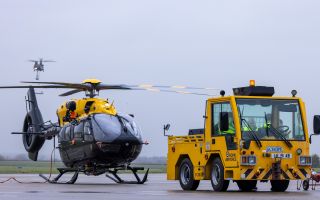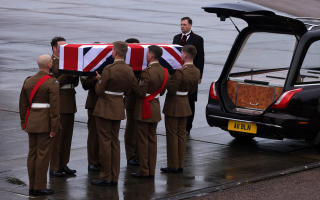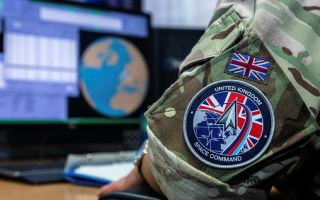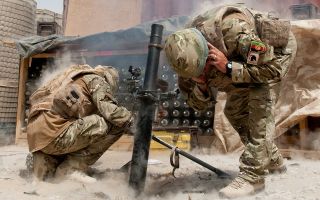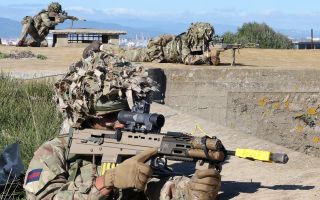PM Puts Case to Parliament for Air Strikes Against ISIL
David Cameron set out the case for air strikes against Islamic State militants after recalling Parliament for an emergency debate about taking on the extremists' "network of death".
The Prime Minister said there was "no more serious an issue" than deciding whether to commit British forces to the international effort to tackle IS and acknowledged the military effort would last "not just months, but years".
MPs will vote on whether to back the Royal Air Force joining the US-led bombing campaign, but British air strikes will be limited to Iraq rather than IS strongholds in Syria.
Opening the debate in the Commons Mr Cameron said: "The question before the House today is how we keep the British people safe from the threat posed by Isil and, in particular, what role our armed forces should play in the international coalition to dismantle and ultimately destroy what President Obama has rightly called this network of death.
"There is no more serious an issue than asking our armed forces to put themselves in harm's way to protect our country."
"This is not a threat on the far side of the world," Mr Cameron told MPs.
"Left unchecked, we will face a terrorist caliphate on the shores of the Mediterranean, bordering a Nato member, with a declared and proven determination to attack our country and our people.
"This is not the stuff of fantasy - it is happening in front of us and we need to face up to it."
The Prime Minister said he would set out why there was a direct threat to the UK, that there was a "comprehensive plan for dealing with the threat", that military action was necessary, including UK involvement, that it was legal, had the support of local partners and "added up to a moral justification for putting the lives of British service men and women on the line".
Outlining the domestic threat, he pointed out that the jihadist group had "already murdered one British hostage and is threatening the lives of two more", plotted attacks which would have affected British tourists and were "a terrorist organisation unlike those we have dealt with before".
Mr Cameron said there was "a strong case for us to do more in Syria" but recognised that it would require more work to secure Parliamentary approval of extending British involvement to that country.
Mr Cameron said the military action would come as part of a "clear comprehensive plan" which included "tough, uncompromising" measures at home to prevent attacks.
These included previously-announced new powers to seize passports, strip British nationality from dual nationals and ensure airlines comply with no-fly orders.
"In all of this, we are being clear about the cause of the terrorist threat we face," said the PM.
"That means defeating the poisonous ideology of Islamist extremism by tackling all forms of extremism, not just the violent extremists."

